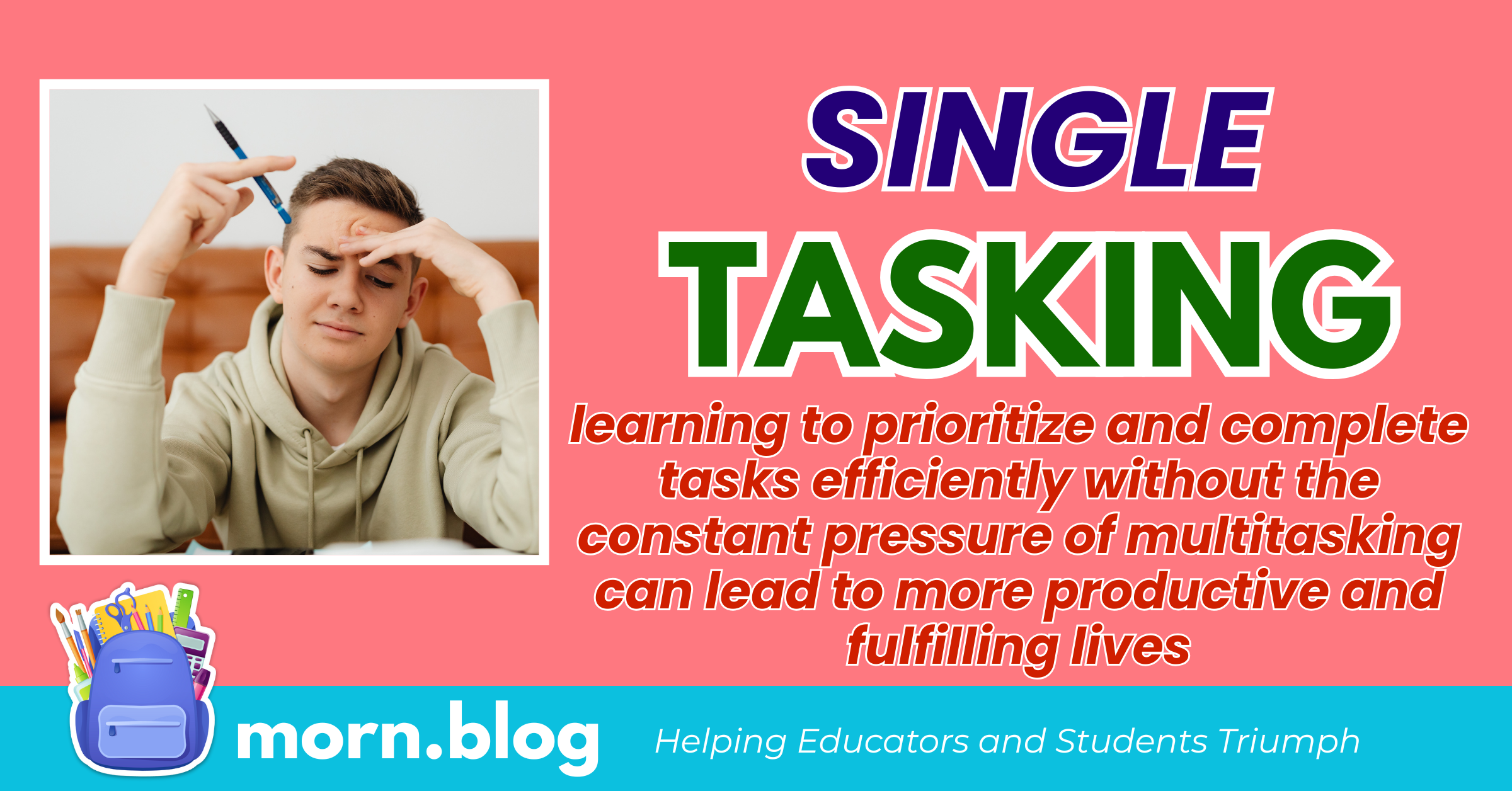6 Completely Earnest Reasons to Utilize Single-Tasking for More Effective and High-quality Academic Performance
Many of us, especially students, often experience an overwhelming amount of tasks at school, such as in subjects like Mathematics, English, and Science.
One of the potential strategies to have a more effective and higher quality academics is to utilize single-tasking. It is a technique that is highly recommended by experts.

Table of Contents
Workloads of Senior High School Students
In Senior High School, the workload tends to be more balanced, but different strands come with varying challenges.
For instance, in STEM, students face numerous mathematical problems and critical thinking exercises across various subjects.
In HUMSS, students are often tasked with reports and oral communication.
In ABM, the focus is mainly on business-related tasks, while in TVL, students engage in technical activities like cooking or computer repairs, dealing with the specifications of the machines they work with.
What is Single-Tasking
Single-tasking, perhaps one of the most effective approaches, can offer students a more manageable and productive study experience.
Research suggests that single-tasking, as opposed to multitasking, leads to greater productivity and better results because it allows a person to focus on one task at a time.
This method reduces distractions and mental fatigue, which in turn enhances overall performance.

Advantages of Sing-tasking
Prevents Cognitive Overload
One of the advantages of single-tasking is that it helps to prevent cognitive overload.
When a student focuses on just one subject or task, their brain doesn’t have to switch between different modes of thinking.
This makes it easier to understand and retain information. The constant switching between tasks, as seen in multitasking, can lead to mental exhaustion and a drop in the quality of work.
Focusing on one thing at a time allows students to complete assignments with better attention to detail.
Improve Time Management
Moreover, single-tasking can improve time management. When a student is committed to completing one task before moving on to the next, they are more likely to plan their time effectively.
Instead of feeling rushed to finish multiple tasks at once, they can dedicate enough time to fully understand and complete each one.
This can lead to a more organized and less stressful approach to studying.
Encourages a Deeper Level of Focus
In addition to reducing stress, single-tasking encourages a deeper level of focus. By concentrating on one task, students are more likely to enter a state of “flow,” a psychological state where they are fully immersed in their work.
This state is often associated with higher productivity and creativity.
In a busy academic setting, achieving flow can be difficult with distractions, but when a student commits to focusing on a single-task, they increase their chances of experiencing this heightened state of focus.

Encourages Better Learning Outcomes
Single-tasking also encourages better learning outcomes.
When students are not juggling multiple tasks at once, they can dive deeper into the material and have a clearer understanding of the concepts.
Whether it’s solving a complex math problem, writing an essay, or studying for an exam, the focus on one task at a time ensures better comprehension and retention of knowledge.
Develop Better Habits
Furthermore, by practicing single-tasking, students can develop better habits that extend beyond school.
In real life, managing time and focusing on one task at a time is crucial for personal and professional growth.
Learning to prioritize and complete tasks efficiently without the constant pressure of multitasking can lead to more productive and fulfilling lives.
Fosters a Sense of Accomplishment
Lastly, single-tasking fosters a sense of accomplishment. Completing one task at a time and seeing it through to the end gives students a sense of satisfaction.
This satisfaction can boost their motivation, encouraging them to tackle the next task with more energy and focus.
The act of accomplishing tasks, even small ones, helps build confidence and reinforces the habit of focused work.

Conclusion
In conclusion, single-tasking is a powerful tool that can improve productivity, reduce stress, and lead to better learning outcomes for students.
While multitasking may seem efficient at first, focusing on one task at a time often yields more effective and high-quality results.
By embracing single-tasking, students can navigate their academic responsibilities with greater ease and develop lifelong skills that will serve them well in the future.
Share This Story, Choose Your Platform!
School Hacks
Subscribe
Fresh insights and exclusive perks delivered straight to your inbox. Sign up now!





